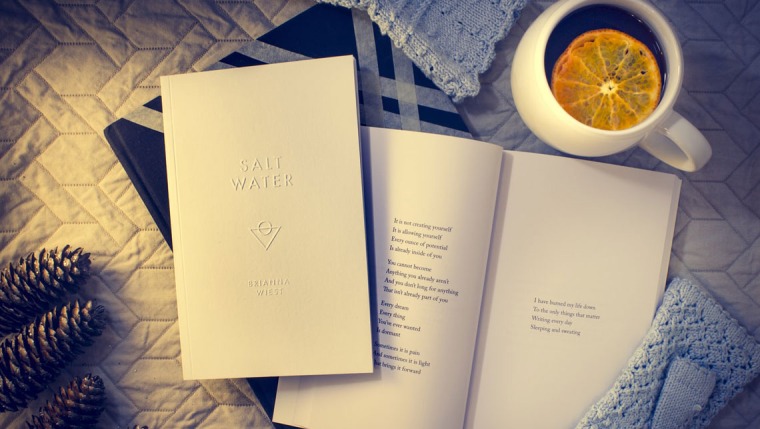
Stories To Read Before You're 25
Wednesdays at 3pm in the Patricia MacCorquodale Academic Lounge
There is no commitment to attend all of the sessions. Drop-in for one or all the sessions however your schedule permits. Click on each title to read the short story before attending.
Jan 22: Drown by Junot Diaz
"I thought leaving home for college would be the hard part. As it turns out, the hard part was going back home to visit family and friends who, each year, seemed more distant. (I'm sure the feeling was mutual.) This distance between people who leave and people who stay is at the heart of Junot Díaz's short story 'Drown.' One friend goes to college, the other stays in their North Jersey hometown and despite their promises to stay in touch, life floods in like water, setting their friendship adrift. It's the kind of story that makes you want to look your old best friend up and say 'Hey, got time for a phone call?' which is really code for 'Let's give ourselves another chance. We are worth it.'" -Saeed Jones
Feb 5: Bettering Myself by Ottessa Moshfegh
"It's the story of a woman who's just 30, and is divorced, is most likely an alcoholic, works as a teacher (a job she hates), and has a boyfriend who's still in college. The prose is whip smart. The narrator struggles to acknowledge that her life matters, that she's accountable whatsoever, because of how meaningless it all feels -- her failed relationship, her students being subjected to standardized tests, the empty promises she makes herself. ('All good here,' I pretended to say. 'Just bettering myself, as always.')" -Sandra Allen
Feb 19: Drinking Coffee Elsewhere by ZZ Packer | Please RSVP if you plan on attending
"The title story in ZZ Packer's collection follows a black female first-year at Yale who struggles with alienation, sexual identity, and her mental health while away at school. Packer has a talent for articulating the ups and downs of awkwardness, disappointment, emotional pain, and social dyspepsia â bedfellows many twentysomethings know all too well." -Jessica Misener
March 4: What We Talk about When We Talk about Love by Raymond Carver
"What We Talk about When We Talk about Love is a gritty, realistic conversation about love without ever mentioning love itself. Between these two couples readers explore the vicissitudes of human emotion, especially the inconstancy and power of romantic love." -Jamie Cox Robertson
March 18: Madison at Guignol by Joyce Carol Oates
"It might not be a terribly kind portrayal of women/aging in general (to put it mildly), but Joyce Carol Oates's 'Madison at Guignol' from The Female of the Species is still about a very real fear and, I think, a cautionary tale of what NOT to be and what to actively speak out against. It scared me and I think about it every time I pass a mannequin display." -Alex Alvarez
April 1: The Dead by James Joyce
"What strikes me most about 'The Dead' is how deftly it replicates the indefatigable experience of wading through social interactions, burdened by ego and by doubt. Little happens. Even the ending, its realization, is relatively small, and yet remains one of the largest, most haunting paragraphs I've ever read. Rereading the story, dissecting it, you realize the story is a tapestry and not a thread is extraneous." -Sandra Allen
April 15: All At One Point by Italo Calvino
"All at One Point" is a very short story that imagines where we all come from in the most literal sense: Its setting is the single point before the Big Bang, and its characters are... particles? The conceit is a strange and dislocating one, and much of the breezy first-person narration is given over to unpacking its logic: "I say 'packed like sardines,' using a literary image: in reality there wasn't even space to pack us into. Every point of each of us coincided with every point of each of the others in a single point, which was where we all were."
I won't spoil what actually ends up happening. But I will say that the vision of the universe with which the story ends -- the achingly tender memory we're left with on the other side of this peculiar thing -- is so unexpected, so disarmingly lovely, that I have never, ever stopped thinking about it. Calvino puts your brain through gymnastics, sure. But he ends up going right for your heart. -R.S.
April 29: Hills Like White Elephants by Ernest Hemingway
"[A]s an aspiring writer, it teaches you the art of storytelling and the 'iceberg' theory of telling a story. It taught me that nothing is ever really what it seems to be on the outside, and ... it also deals with love and the importance of communication between two people in a relationship. A relationship requires work and talking things through, as dark as the story is." -Candace Lowry
May 6: Letter to a Young Lady in Paris and House Taken Over by Julio Cortazar
"These stories open your eyes to the fact that there are different possible ways of perceiving the world, that not all of them are strictly logical, and that sometimes you can control them and others you can't. It's more or less the premise of surrealism, but far more understated and precise. The stories are also beautiful in an unnerving way." -David Noriega

